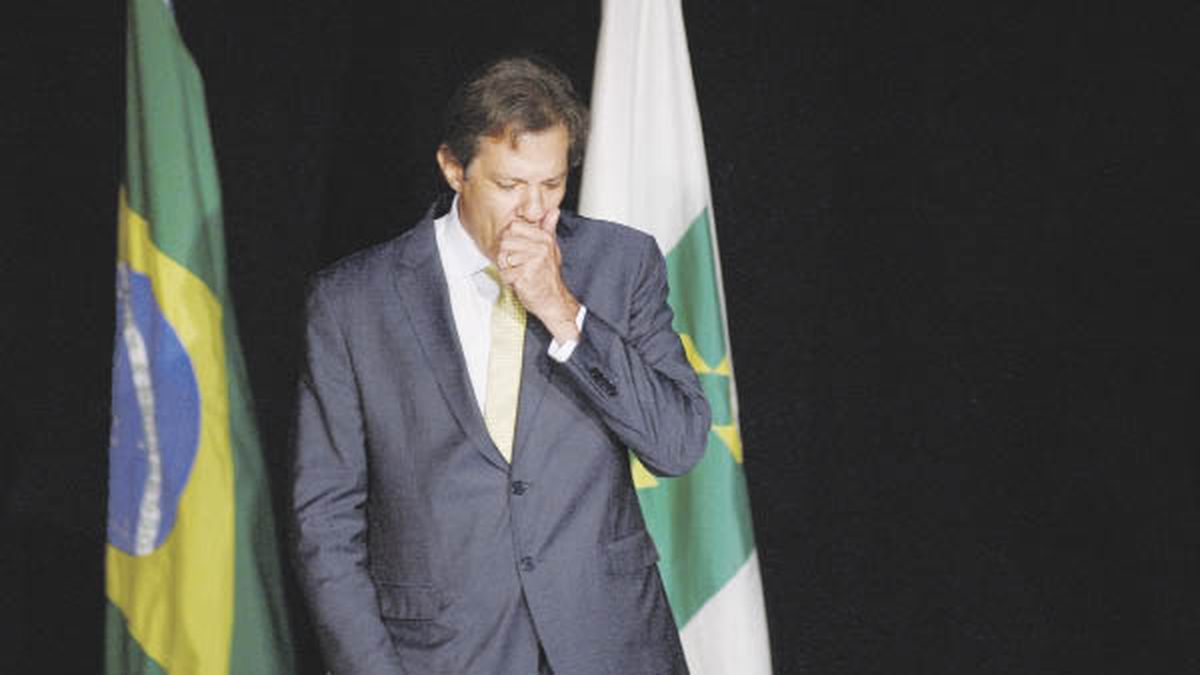The climate of suspicion among financial agents has several explanations.
To begin with, Lula da Silva was not his first choice at any time during the campaign that ended in the long-suffering ballot on October 30. On the contrary, the bet of the market was then the re-election of Bolsonaro, a man who ensured deregulation and budget austerity… at least in lip service, because the final stretch of his administration was a revolt of expenses that, in any other case, orthodoxy would not I would have hesitated to dismiss it as “populism”.
Secondly, even before he took office, Lula da Silva managed to get the Federal Supreme Court (STF) to intervene in the face of a blockade by Congress and determine that he could spend to finance the Auxilio Brasil program -the old Bolsa Família renamed by Bolsonaro and which now it will resume its original name – outside the budget cap voted by the Legislature.
“These expenses are not included in the calculation base and in the limits established in the constitutional spending ceiling,” said Supreme Court Judge Gilmar Mendes, who authorized “the opening of an extraordinary credit” to finance these social aids. Consummated that decision, Congress – where the Bolsonaro right is strong and has the ability to block votes that, like the one in question, require aggravated majorities – relented and approved a Constitutional Amendment Proposal (PEC) in this regard.
In his popular speech, Lula da Silva described as “stupidity” the freezing of public spending in real terms, perhaps the main reform of the government of Michel Temer, who took over the government after the conspiracy that wiped out Dilma Rousseff in August 2016. It should be noted that these liberal reforms did not bring Brazil the promised prosperity.
Thirdly, the operators also registered as a defeat for the Minister of Finance Fernando Haddad, the former mayor of São Paulo and candidate defeated by Bolsonaro four years ago, the decision of the new government to extend the exemption from the federal fuel tax for one year. , the one that will apply to diesel and biodiesel, a Bolsonaro measure that aimed to moderate the rises in pumps when inflation was flying around 12% per year due to the war in Ukraine and that has a fiscal cost of about 10,000 millions of dollars. Not coincidentally, the shares of Petrobras sank twice as much as the Ibovespa, amid reports from analysts who denounced the attack by the new head of state against the spending ceiling and his commitment to growth induced by the State, while at the same time they heralded a “disaster” for the accounts of state-controlled companies.
Need
Now, when the consumer price index points to 5.31% for the year, the economic situation of families continues to require support so that the vulnerable middle class does not fall into poverty, the poor into destitution and the indigent into utter despair.
However, the moderate Haddad has to synthesize all kinds of pressures and interests. A PT man, he will guard the most delicate portfolio for the benefit of Lula da Silva’s project. One of those interests is that of the financial market, which he interpreted the extension of the fuel subsidy as a defeat for the official at the hands of the political wing of the party.
Under pressure, Haddad said that the recovery of public accounts and a faster drop in inflation will be his priorities.
In his first term, Lula da Silva was able to deal with the mistrust of the operators by appointing ex-BankBoston Henrique Meirelles as president of the Central Bank. However, the situation of the first years of the century, with record prices of raw materials, allowed the progressive governments of South America to carry out social policy without compromising macro balances.
“We are not here for adventures,” added Haddad in his first speech as minister, while describing as “absurd” the final spending of Bolsonaro and the primary deficit projection of 42 billion dollars that was reflected in the Budget. “We are going to reduce” that red, he promised and announced a new “fiscal anchor” to ensure the sustainability of public debt payments.
Source: Ambito
David William is a talented author who has made a name for himself in the world of writing. He is a professional author who writes on a wide range of topics, from general interest to opinion news. David is currently working as a writer at 24 hours worlds where he brings his unique perspective and in-depth research to his articles, making them both informative and engaging.




